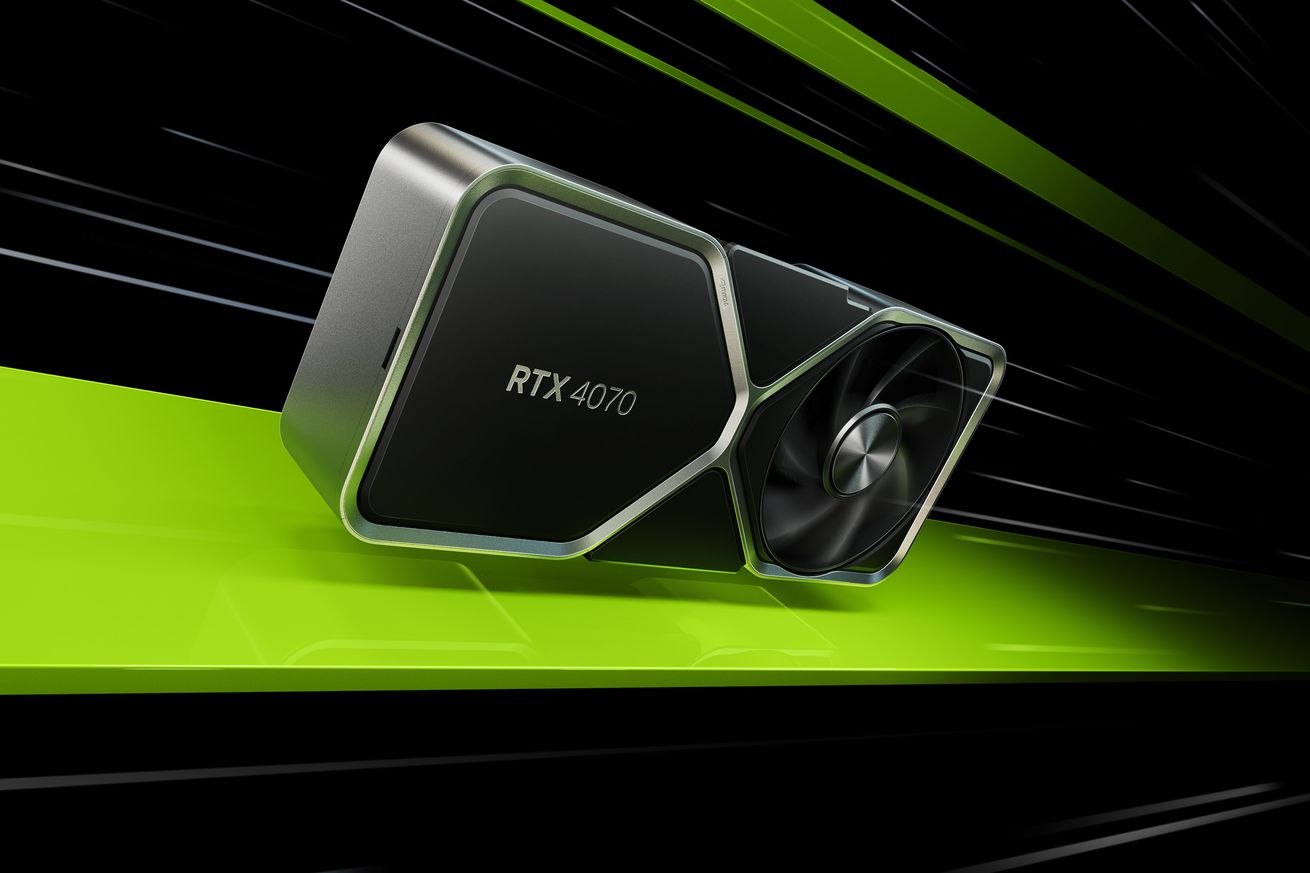
Nvidia announces $599 RTX 4070, available April 13th
Nvidia is making its new RTX 4070 graphics card official today after weeks of leaks. The RTX 4070 will be available on April 13th priced starting at $599 for Nvidia’s own Founders Edition model. Nvidia is pitching the RTX 4070 for 1440p gaming at more than 100fps with ray tracing and the company’s latest DLSS 3 upscaling tech enabled.
The RTX 4070 is Nvidia’s first 40-series Founders Edition card that’s reasonably sized, so it can fit inside most cases — even those with small form factors. The RTX 4070 is actually shorter than an RTX 3080 and is designed to match its performance at 1440p at least. Built on Nvidia’s latest Ada Lovelace architecture, the RTX 4070 includes 12GB of GDDR6X instead of the 8GB found on both the prior RTX 3070 and RTX 3070 Ti models.
That bump to 12GB of VRAM is welcome, but Nvidia could have gone further here — particularly as the latest games at 1080p and 1440p are now starting to eat up 8GB or more. In a timely blog post, AMD laid out why “more memory matters” on GPUs earlier this week ahead of Nvidia’s announcement. AMD was quick to point out how it shipped its RX 6800 with 16GB of VRAM more than two years ago along with its RX 6800 XT and RX 6950 XT, both with 16GB. AMD’s latest flagship RX 7900 XTX ships with 24GB of memory, and the RX 7900 XT comes equipped with 20GB.
Nvidia’s new RTX 4070 also includes support for the AV1 codec, which will be particularly useful for streamers soon, as YouTube is getting ready to roll out AV1 livestreaming soon to improve bitrates and picture quality. The RTX 4070 also supports DLSS 3, which promises to boost frame rates in games like Cyberpunk 2077, Forza Horizon 5, and Bethesda’s upcoming Redfall.
DLSS 3 is exclusive to the RTX 40-series cards and uses the same AI from DLSS 2 alongside a new AI frame generation technology to generate two frames using existing rendering techniques; then, a third frame is inserted between them. The result is big boosts to frame rates, which are essential for ray tracing and even improvements like path tracing in Cyberpunk 2077.
Interestingly, Nvidia says 83 percent of RTX 40-series owners turn ray tracing on in RTX-capable games, and 79 percent enable DLSS, too. RTX 30-series owners turn DLSS on 71 percent of the time in RTX games, while 68 percent of RTX 20-series owners enable DLSS in these titles.
The high amount of ray-tracing usage among RTX 40-series owners drops significantly for older cards, though. Just 56 percent of RTX 30-series owners enable ray tracing in RTX-capable games, and 43 percent enable ray tracing on the RTX 20-series cards. That high percentage for RTX 40-series cards will likely drop as the lineup moves increasingly toward the midrange, where performance is often favored over ray-traced visuals.
I’ve been testing the RTX 4070 over the past week or so and found that it can easily compete with the RTX 3080 at 1440p, but at 4K, it’s not as impressive as I had hoped. You can read my full RTX 4070 review right here.

